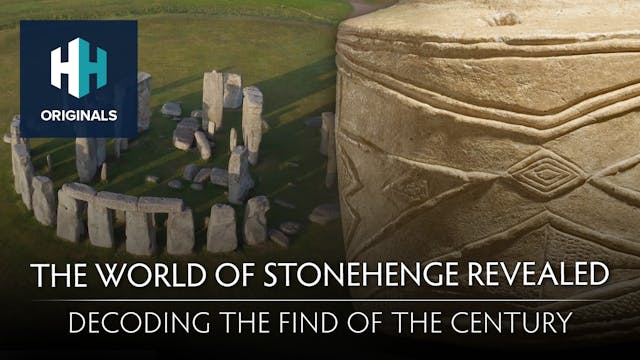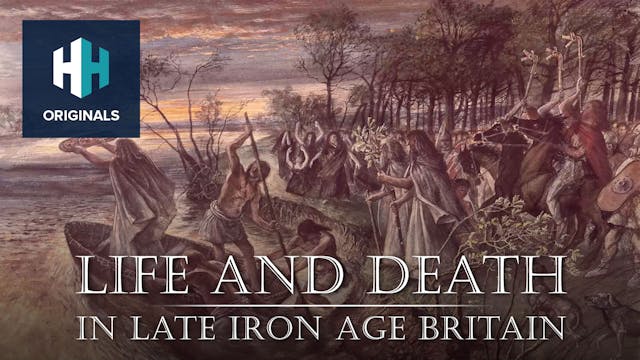Around 800 BC, Britain entered the Iron Age. This era saw the gradual introduction of iron working technology, although the general adoption of iron artefacts did not become widespread until after 500-400 BC.
As the Iron Age progressed through the first millennium BC, strong regional groupings emerged, reflected in styles of pottery, metal objects and settlement types. Technological innovation increased and the population of Britain grew substantially, probably exceeding one million. This population growth was partly made possible by the introduction of new crops, including improved varieties of barley and wheat, and increased farming of peas, beans, flax and other crops.
Join bushcraft and survival expert Ray Mears in the third and final episode of our Ancient Britain series, as he explores the relics of Iron Age Britain. On his journey, Ray visits the magnificent forts at Malvern Hills and a recreation of an Iron Age village at Butser Ancient Farm in Chalton.
Up Next in Everyday Life in History
-
The World of Stonehenge Revealed: Dec...
Described as the "most important piece of prehistoric art to be found in Britain in the last 100 years", an elaborately decorated 5000 year-old chalk cylinder, discovered buried with 3 child skeletons in Yorkshire and as old as the first phase of Stonehenge, is going on display at the British Mus...
-
Life and Death in Late Iron Age Britain
Roman connections with Britain stretch back to (at least) the mid 1st century BC, but what has archaeology revealed about the Late Iron Age British societies they interacted with? Do we have any concrete evidence for the druids? Was human sacrifice a thing? Sit back and enjoy as experts provide a...
-
Ray Mears, The Bow: From Survival to ...
The oldest known evidence of the use of the bow comes from South Africa, where microliths, believed to be arrowheads dating from around 70,000 years ago, have been found.
Evidence of humans' use of the bow can be found all over the world, from cave art in Algeria that shows a man shooting a slig...




46 Comments